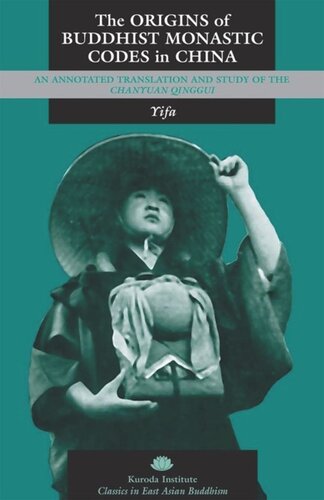

Most ebook files are in PDF format, so you can easily read them using various software such as Foxit Reader or directly on the Google Chrome browser.
Some ebook files are released by publishers in other formats such as .awz, .mobi, .epub, .fb2, etc. You may need to install specific software to read these formats on mobile/PC, such as Calibre.
Please read the tutorial at this link: https://ebookbell.com/faq
We offer FREE conversion to the popular formats you request; however, this may take some time. Therefore, right after payment, please email us, and we will try to provide the service as quickly as possible.
For some exceptional file formats or broken links (if any), please refrain from opening any disputes. Instead, email us first, and we will try to assist within a maximum of 6 hours.
EbookBell Team

4.0
66 reviewsThe Origins of Buddhist Monastic Codes in China contains the first complete translation of China’s earliest and most influential monastic code. The twelfth-century text Chanyuan qinggui (Rules of Purity for the Chan Monastery) provides a wealth of detail on all aspects of life in public Buddhist monasteries during the Sung (960–1279).
Part One consists of Yifa’s overview of the development of monastic regulations in Chinese Buddhist history, a biography of the text’s author, and an analysis of the social and cultural context of premodern Chinese Buddhist monasticism. Of particular importance are the interconnections made between Chan traditions and the dual heritages of Chinese culture and Indian Buddhist Vinaya. Although much of the text’s source material is traced directly to the Vinayas and the works of the Vinaya advocate Daoan (312–385) and the Lü master Daoxuan (596–667), the Chanyuan qinggui includes elements foreign to the original Vinaya texts—elements incorporated from Chinese governmental policies and traditional Chinese etiquette. Following the translator’s overview is a complete translation of the text, extensively annotated.